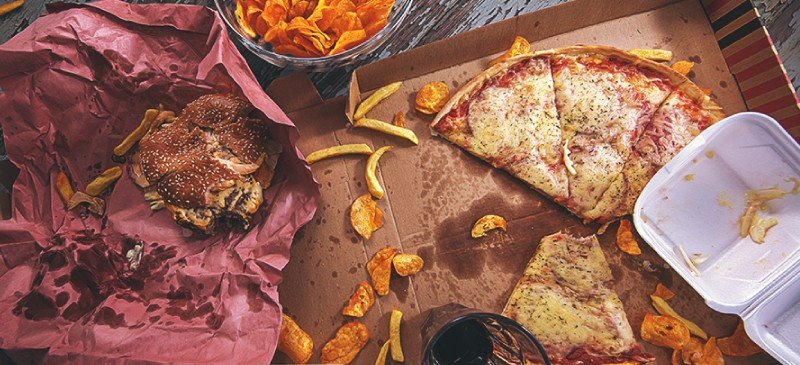Binge Eating disorder: Food has the ability to calm us, improve our mood, and help us reduce anxiety in times of stress. So it is not unusual that after a particularly difficult day we resort to an XL size ice cream or a package of potato chips.
The discharge of sugar and fats provided by these foods stimulates. The production of serotonin, considered as the hormone of happiness. However, after a while our glucose levels plummet, we begin to feel hungry and the pleasant sensation disappears to give way to frustration, anxiety, or depression.
Then we are tempted to turn to food again, and what could have been a one-off reward becomes habitual behavior: we fall for food binge eating.
Binge Eating Disorder: What is it?
Food binge eating is classified under eating disorders and, as its name implies, are episodes in which the person eats uncontrollably, much more than what he really needs to satisfy his hunger. In fact, in some episodes, you can eat more than 5,000 calories. Unlike bulimia, people who have a binge-eating disorder do not usually vomit or use laxatives, which is why they often gain a lot of weight, eventually becoming obese.
Binge eating disorder: the main warning signs
These are the manifestations of binge eating disorder:
Binge eating disorder behavioral symptoms
- Consuming large amounts of food in a very short time, much more than what an average person could eat
- Goes to food even though you don’t feel hungry
- During binge eating episodes eat much faster than usual
Impulse control problems
- Inability to control the urge to consume food
- Feeling of loss of control during binge episodes, the person feels that he cannot stop
- The intake only ends when the person feels physically unwell, either due to indigestion or nausea
Emotional symptoms
- Frustration, anxiety, stress, or even boredom lead you to eat much more than usual
- The feeling of disgust, failure and/or shame after each episode
- Irritated easily and often depressed
The consequences of binge eating disorder
During a single binge episode, the person can consume twice or even triple the calories they need during a day. When this situation repeats itself over time, overweight begins to appear and this leads to obesity. Although it is very common, obesity is a disorder that we should not underestimate. Since it reduces our years of life, increases the risk of suffering from different diseases and profoundly affects our quality of life.
Metabolic disorders are also frequent in people who binge on food since, beyond the quantity of food, its quality also leaves much to be desired, since it is not normally healthy bets but junk food. This increases the chances of diabetes, hypertension, and gastrointestinal problems.
Of course, binge eating disorder not only has consequences on the physical plane but also profoundly impacts on the psychological level. These people are often isolated to eat since they feel deep shame and their social relationships can be affected.
On the other hand, the feeling of lack of control also takes its toll, so they often suffer damage to their self-esteem and may even have suicidal thoughts or self-injurious behaviors.

Binge Eating Disorder Causes
Food binge eating has been associated with addiction since it has been appreciated that many people bet on foods rich in sugar, salt, and fats, ingredients that act in our brains as alcohol or cigarettes would. In fact, when the person eats excessively, he falls into a vicious circle similar to that of addiction: when he eats he feels euphoric but later he feels bad and he is forced to eat again to alleviate this unpleasant sensation.
From this perspective, binge eating disorder could be linked to some changes at the neurological level. For example, in people with a tendency to addiction, it has been noted that there is a deficiency in the functioning of dopamine receptors, a neurotransmitter linked to the reward system.
Beyond the neurobiological bases, it has also been observed that food binge eating is closely related to restrictive diets. It is not unusual for a person to start compulsive eating after following a too-strict diet regimen. Hypothesized that when the body undergoes long periods of starvation. It reacts by starting a new pattern that leads it to eat uncontrollably in short periods of time In order to acquire the energy reserves it needs. This is why it is common for people to get caught up in a cycle of strict diets and binge episodes.
How to avoid food binge eating?
- Understand the nature of the problem. Food binge eating does not simply mean weight gain, but it hides an emotional problem. So it is essential that you understand the underlying mechanism that supports it. Consider that food has not only nutritional but also cultural value and that many of your beliefs about food can lead to food binge eating.
- Leave perfectionism aside. It has been appreciated that binge eating disorder is closely linked to the tendency to perfectionism. Many people often look in food for the satisfaction they have not found throughout their day. Especially when things have gone wrong because they have set the bar too high. In fact, at the base of this disorder, it is also common to find depressive or anxious pictures.
- Eat throughout the day. Nighttime binge eating is often the result of being hungry during the day. Therefore, it is important that you follow a healthy diet throughout the day, the idea is that you always eat at the same time and do not allow more than 4 hours to pass between meals.
- When the temptation appears, do something. When you feel like eating, get involves in an activity that is pleasant for you, and that requires a certain degree of concentration. This will divert your attention away from the food.
- Wait. When you feel the need to eat, wait. Set a goal, such as eating after 15 minutes. Little by little, increase the time between the moment the compulsion appears and your action to satisfy it.
- Buy healthy food. Do not have the foods that tempt you the most. When you go shopping, make a list of the healthy foods you need and stick to it. Another good idea is to place food out of your reach, putting a physical distance or an obstacle will help you emotionally detach yourself. And fight temptation, and above all, do not keep them insight. Instead strategically place healthy and easy-to-eat foods to your reach.
- Bet on spicy foods or raw vegetables. Spicy foods act faster than sugar by sending the satiety signal to the brain. In addition, they help burn calories. Another strategy is to turn to raw vegetables, such as carrots and radishes. As chewing will help relieve stress without consuming a lot of calories.
- Learn to decipher body signals. Focus on the physical signals your body is sending. Eat slowly so you can enjoy each bite, and notice when the feeling of satiety begins. Which normally takes about 20 minutes to reach the brain. Remember that to avoid food binge eating, it is not recommends that there be prohibitions foods. So you will not suffer from anxiety about eating.
The essential objective of psychological treatment is to get the person to develop a healthy relationship with food. The key is to avoid binge eating, not the food itself.
Hypnosis for Binge Eating
At Adelaide Hypnosis Matthew Tweedie, we will help you regain control over your eating habits so that you can have a healthy diet. We combine psychological intervention to influence the emotional and cognitive aspects that lead you to have hypnosis for binge eating with nutritional coaching, establishing goals that you can commit to.
We use different tools to treat this problem, including cognitive-behavioral psychotherapy, which has proven to be very effective. In this type of therapy, we focus on identifying and changing the dysfunctional patterns of thoughts, attitudes, and beliefs that trigger or maintain the problem with food. However, since binge eating is also a tool for anesthetizing emotions. It is important that you learn new forms of emotional regulation. Through nutritional coaching tools. We will be setting realistic goals and accompanying you in changing habits towards a healthier way of relating to food.
















